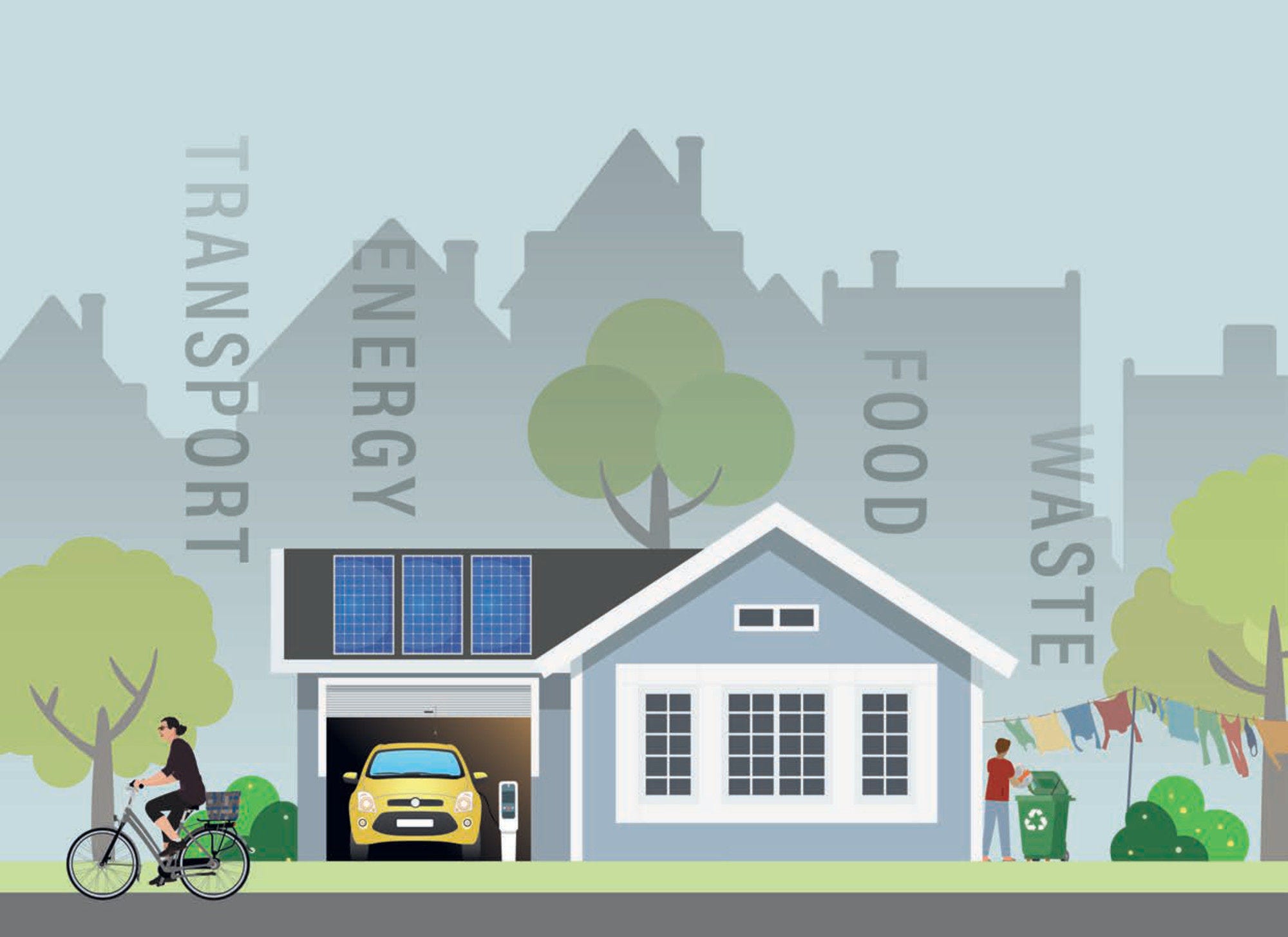Key bottlenecks to sustainable behaviour include a lack of availability and awareness. For instance, individuals may lack renewable energy options or charging stations for electric vehicles. Barriers can also include structural issues such as the misalignment of incentives between tenants and landlords. Policymakers must carefully consider policies to be able to overcome such issues, such as tenants' access to community solar energy options.
Greening household and firm behaviour
Governments can provide an enabling environment for sustainable household and firm behaviour. The OECD provides unique insights into the drivers of environmental behaviours and the measures governments can put in place to overcome identified barriers to more sustainable choices.

Key messages
Affordability and convenience are important factors for encouraging sustainable choices, especially around transport and food. Income and environmental concern are important factors in many decisions. However, environmental concern alone does not appear to be sufficient to change certain behaviours, such as eating red meat or using a car. By increasing the cost-effectiveness and the convenience of sustainable alternatives, policymakers can increase their appeal to households and firms.
Respondents systematically express less support for taxes and fees than for measures that make sustainable alternatives more affordable, such as subsidies. Policy complementarity is an important consideration, as households’ acceptance of and ability to respond to tax-based measures depends on the alternatives available. In addition to providing sustainable alternatives, policymakers can complement the rollout of taxes and fees by recycling the revenues these instruments generate. For instance, tax revenues can be used to fund improvements in public transport.
Certain environmental behaviours go hand in hand. For instance, people who report frequently eating seasonal food are also more likely to report that they do not waste food. Complementary incentives can reward environmental action in one domain by providing incentives for action in another domain. For example, those who shop with reusable containers could receive discounts on sustainable food items.
About
The OECD Environmental Policies and Individual Behaviour Change (EPIC) surveys explore the drivers behind household behaviour and how policies may affect decisions in key consumption areas. Following two previous rounds of the EPIC survey in 2008 and 2011, the OECD implemented a third round in 2022 to more than 17,000 households across nine countries: Belgium, Canada, Israel, France, the Netherlands, Sweden, Switzerland, the United Kingdom and the United States. The third round addressed household behaviour in four key areas: energy, transport, waste and food consumption. The third round of the survey came at a time of interlocking global crises, including the COVID-19 pandemic, geo-political tensions and tumultuous energy and commodity markets.
Context
Among competing priorities, concerns about the climate and environment come after the economy and personal safety
EPIC survey respondents report the most concern about personal safety and economic issues. Concern for climate change and other environmental issues ranks third of the six issues explored. Women, older individuals and those with higher education tend to express greater concern for climate change and the environment.
Most households would make at least some lifestyle compromises to benefit the environment
Targeting behaviour change relies on a well-developed understanding of public perception and how individuals react to and interact with different policy measures.
65% of EPIC survey respondents are willing to make personal compromises to their lifestyles for the benefit of the environment. However, almost as many (63%) feel that these compromises should not mpact them financially and therefore are unwilling to pay extra. This is especially true of lower-income households.
Some habits are harder to change than others
Nearly 70% of households surveyed report eating meat at least once a week. Approximately one third of these respondents eat meat several times a week. Results also indicate that these habits are similar between households with high and low environmental concerns.
Similarly, only 54 % of households report that they would drive less frequently if more public transit options were available. These results suggest that comprehensive policies that include a combination of measures may be needed to significantly increase sustainable behaviours.
Latest insights
-
 Press release13 June 2023
Press release13 June 2023
Related data
Related publications
Related policy issues
-
To ensure sustainable development, countries must balance priorities among three pillars – the environment, society and the economy. The OECD examines the linkages between the environment and a range of economic, sectoral and social concerns – from technology and innovation, to trade, labour market impacts and gender equality.Learn more
-
The development and deployment of new green technologies is key to mitigate and adapt to climate change, reduce negative impacts of economic activity on nature and reduce pollution.Learn more
-
Succinct, straightforward, and clear, jargon-free, messaging is required here: what are the (global) challenges and what is at stake (for OECD countries) with respect to this policy sub-issue? Keep in mind user perspective logic by signposting the multiple angles/sectors that can be brought to bear on the issue. 180-300 chars (3-6 lines) is ideal.Learn more
-
Understanding consumer behaviour is key to effective policy design. Behavioural insights, rooted in psychology and social science research, explain how people actually make decisions.Learn more
-
Policies are crucial to preserving and protecting the environment, but their economic and environmental implications are not always clear. The OECD has a long history using economic models and quantitative assessments to inform policymakers of the costs, benefits and potential tradeoffs of environmental policies.Learn more
-
There is mounting evidence that, depending on social and economic circumstances, some communities and groups may be exposed to more environmental hazards, bear a greater share of the costs associated with environmental policies and face more barriers to participating in environmental decision-making. As countries increase their efforts to tackle biodiversity loss, pollution and climate change, the concept of environmental justice can shed light on how to ensure fairness in the processes and outcomes of environmental policymaking. The OECD provides a forum for policymakers to support these efforts.Learn more
-
Policymakers face the challenge of supporting a healthy environment while fostering inclusive and sustainable economic development. OECD analysis helps policymakers understand the impacts of environmental policies to mitigate their adverse effects.Learn more
-
Consumers can play a critical role in reaching climate and sustainability goals. However, more needs to be done to support sustainable decision-making.Learn more
-
Both trade and environment policy makers recognise the importance of a rules-based multilateral trading system as part of the solution to the triple crisis of climate change, biodiversity loss and pollution. To support these international discussions, the OECD provides evidence-based analysis on how trade and environment policies can be mutually supportive.Learn more
Subscribe to our newsletter
The OECD regularly publishes newsletters featuring the latest publications, analysis, events, Green Talks LIVE webinars, articles and blogs related to environment.







